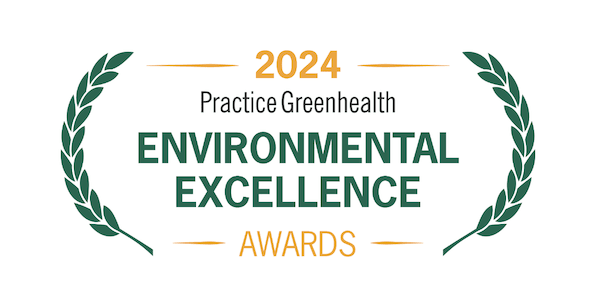Providence’s Better Birthing Project honors tribal cultures
[5 MIN READ]
In this article:
-
The Better Birthing Project was developed to bring health equity — specifically birth equity — throughout area tribal communities.
-
Through the project, doulas who are local to native tribes help expecting moms develop a birth plan, then partner with that mom during delivery and for up to a year afterward.
-
One new mom, grateful for the changes, was allowed to prioritize her personal wishes and her tribe’s culture, including waiting to name her baby until the appropriate time.
To ensure all families have access to prenatal planning and ideal birthing conditions, the Better Birthing Project at Providence strives to build relationships and increase trust between Providence and the Indigenous communities it serves.
“The Better Birthing Project is a way for the hospital to partner with the community, to listen to them and really start building trust in order to have better birthing experiences,” Providence Program Coordinator Hannah Lippe says of this effort to improve birth equity and ensure safe births.
The project’s beginnings
“The root and the basis of this project really started with listening. It started with interviewing families and asking them to tell their stories,” says Providence’s Doula Program Coordinator Danielle Anderson-Reed of the Ponca Tribe. “One of the things that we heard and we've responded to is the need for more doula and community supports for birthing people — not just any doula in the community, but local, native doulas.”
Health and prenatal specialist Darla Marshall of the Yurok tribe has been a doula for more than two decades helping moms and babies through labor and delivery. She recognizes the importance of the medical staff partnering with the native tribal community to effect change.
“The Better Birthing Project through Providence is that change,” Darla states. “In the past, they wouldn’t let us practice our culture in the hospital when a baby is born — sometimes it’s song, sometimes it’s a baby basket. The Better Birthing Project stopped some of that prejudice, so now our nurses are able to relate to and make our families more comfortable in the birthing process.”
That change was felt immediately by Chwakin, a native of Hupa who created a birth plan for her daughter, Hope, before delivery. “Darla was super helpful. I don’t think I could have gone through this experience without her,” she says. “Darla educated me very well, especially being a first-time mom. She’s very important, especially because she is well known in the community, so she can relate to a lot of native moms.”
Doula guidance before, during and after delivery
“With families, from the moment we find out they’re pregnant, we help them through their pregnancy,” says Taushona Moon of Hupa, a doula medical assistant. “Now we’re there for their birth, and then right after birth when they come home.”
The doulas visit regularly, then begin to spread out visits over time. “We’re there for weekly visits until the mom is comfortable enough to [wait longer between] visits. We’re typically there until the infant is one year old,” says Taushona.
Quality care from a registered nurse
“The Better Birthing Project at Providence has provided the ability to have me, as a nurse, provide better care to the community,” says Christina Thompson of the Eastern Band of Cherokee Indians.
“It’s an amazing outreach program. It doesn’t matter where you go or where you come from, you’re going to get treated the same,” says Christina, explaining that pregnant women don’t have to be seen at Providence in order to access the Better Birthing Project doulas and nurses.
“Having Christina made me feel very well taken care of and very understood,” says Chwakin. “She helped me understand everything, which made me feel like we were in this together, and I wasn’t alone.”
Honoring traditions with a personalized birth plan
“The birth plan is a really big piece of the Better Birthing Project at Providence,” says Hannah. “One thing critical to the birth plan is allowing families and parents to really gain control over their birthing process.”
That control allowed Chwakin to make decisions about her birthing experience that honor her culture’s traditions while maintaining safety.
“I had a safer experience because of my birth plan,” Chwakin says. “What is important to us moms when we give birth — what we do as native women — was involved in our birth plan. They let me be in the bathtub for as long as I wanted. We kept the umbilical cord, and we waited 10 days to name her.”
The tribal tradition of waiting to name a baby conflicted with a state legislative mandate that paperwork naming the baby had to be submitted within 10 days. Recognizing this conflict and the importance of the tribe’s custom, Hannah and other project leaders had to do their research and launch a grassroots effort with the local legislation to enact change.
“We were able to use our government affairs team within Providence, and they helped us. We talked to the legislators. We were actually able to change how we do birth registration and move it from 10 days to 21 days,” Hannah explains.
Creating a meaningful place to deliver
The Childbirth Center at Providence St. Joseph Hospital was being remodeled at the time, providing the perfect opportunity to offer inclusion in the décor.
“We really took a lot of time and effort into changing our artwork, and now we have a lot of local artwork,” says Susan Johnson, RN.
In this new artwork, Chwakin noticed traditional baby baskets used by her community.
“What stood out to me from the artwork was all the baskets,” she says. “There is one picture with a native mom with her baby in her basket. I really, really loved that picture, especially after Hope was born. We would walk around the hospital together, and I would look at that picture every single time. It just gave me little butterflies, and I thought, ‘oh my, that’s me now.’”
Hope explains the Better Birthing Project has lots of other plans for the future. “People will be able to birth their children in a way that feels respectful, in a way that they can practice their traditions that feel most fitting with their family and their values.”
Chwakin is grateful.
“It’s nice that our culture is coming back to life, and we can be recognized that we’re still people,” says Chwakin. “Our feelings still matter; our rituals still matter.”
Find a doctor
If you are looking for an obstetrics and gynecology (OB-GYN) provider, you can search for one who’s right for you in our provider directory.
Download the Providence app
We’re with you, wherever you are. Make Providence’s app your personalized connection to your health. Schedule appointments, conduct virtual visits, message your doctor, view your health records and more. Learn more and download the app.
Related resources
Providence’s Better Birthing Project honors tribal cultures
Preparing for baby’s arrival with a comprehensive birth plan
Providence supported one family through a challenging birth
This information is not intended as a substitute for professional medical care. Always follow your health care professional’s instructions.




